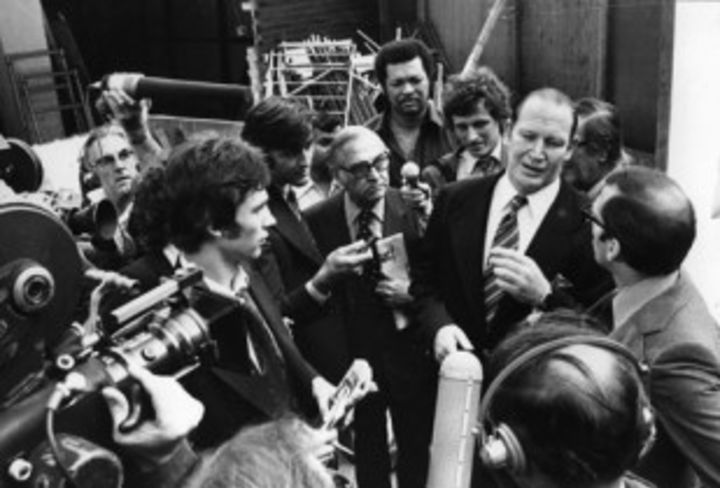Beware the backlash
The IPL is a possible guide's to cricket's future but greed will ruin it and result in the public losing faith in it. The BCCI must ensure its future is fiscally responsible

The Yanks do it, the Indians do it, even the isolated Aussies do it; let's do it, let's fall in love. Fall in love with money, that is. That parody of the Cole Porter hit refers firstly to the global financial crisis triggered by the greed of American businessmen. Then the escalating scandal involving the financial dealings of the IPL, and finally the uncovering of flagrant salary cap breaches by the highly successful Melbourne Storm Rugby League club.
I've long thought the weakness in businessmen running sport is that they aren't used to being constrained by the rules, or in the case of cricket, the laws. I came to this conclusion during World Series Cricket in the late 1970s. Australia were playing West Indies in a game where it became obvious the local council deadline for the lights wasn't going to allow a finish to a thrilling encounter. A WSC executive tentatively approached Kerry Packer with the bad news and was told the solution is simple: "Turn off the power to the scoreboard and then the digital clock won't be visible." While this was a logical solution to a successful businessman used to getting his own way, it caused great confusion on the field. In the moments following the darkening of the scoreboard, the garbled messages relayed to the players resulted in Australia losing a game they thought still had a couple of overs left to run.
Having alienated the Australians with his "throw away the rulebook" approach, Packer then showed he was at least fiscally above reproach. A few months later the Australian team was due to fly to the Caribbean for a WSC super series against the powerful West Indies. On the eve of our departure it came to Packer's attention the players weren't being paid according to the letter of their contracts. The office reverberated as he bellowed, "Pay them what they're owed", quickly followed by "And how much will that cost?"
A swift calculation deemed it to be around A$350,000. "That's not necessary, Kerry," I volunteered, "the players are now happy with the present financial arrangements."
"Listen son," Packer said as he rounded on me, "$350,000 won't break this company. What will finish us is not honouring our contracts."
Packer was as good as his word, and I realised that while he might be a "boots and all" businessman there was a legal morality underpinning the operation.
That's why the IPL has to be beyond reproach. If there has been impropriety in the franchise dealings or in any matters relating to the operation, it has to be dealt with severely and summarily.
The virtues of the IPL are many. It attracts new fans to the game, rewards players generously, and generally provides highly competitive contests. However, a major financial scandal at a time when the world has just been whacked by greedy men playing monopoly with someone else's money requires heavy punishment
The hefty punishment meted out to the Melbourne Storm could provide a clue to the required severity. The Rugby League club has been stripped of the two titles and three minor premierships it has won in the last five years, along with having to repay prize money and incurring a substantial fine.
It would be easy to find the IPL guilty of over-indulgence, and Lalit Modi's ubiquitous television cameos could be perceived as arrogance. Combine that with the latest accusations and fans can be forgiven for putting two and two together and coming up with 10. If the IPL's accounting system follows a similar pattern then the violations need to be redressed immediately.
The IPL is not only a valuable product, it's also a possible guide to cricket's future. If the public suspects it's more like one big lark to boost the income and egos of people already bursting with riches, then they could turn nasty quickly.
There's also a danger the players will start thinking, "What's good for the goose is good for the gander", which could lead to further scandal, and very quickly you've got a disaffected public on your hands.
The virtues of the IPL are many. It attracts new fans to the game, rewards players generously, generally provides highly competitive contests because of well-matched teams, and run prudently it provides a pathway to globalise the game via the franchise system. However, a major financial scandal at a time when the world has just been whacked by greedy men playing monopoly with someone else's money requires heavy punishment. Just as importantly, the BCCI needs to put in place provisions to ensure the path ahead is fiscally responsible; the public may be fascinated by riches but they quickly become disillusioned with greed.
Former Australia captain Ian Chappell is now a cricket commentator and columnist
Read in App
Elevate your reading experience on ESPNcricinfo App.